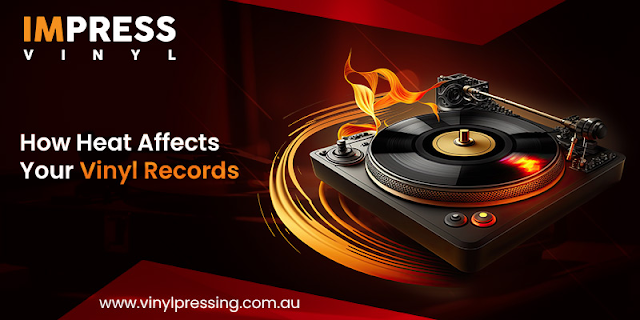Vinyl Records and Heat: The Dangers Unveiled and Prevention Methods
Vinyl records have experienced a remarkable resurgence in popularity, captivating both audiophiles and collectors alike. The tactile and auditory experience they offer is unparalleled, making them cherished treasures. However, one often underestimated factor that can swiftly undermine their quality is heat. In this article, we will delve into the detrimental effects of heat on vinyl records and provide valuable insights into how to shield your prized collection from heat-related deterioration.
The Impact of Heat on Vinyl Records
Vinyl records are made from a combination of PVC (polyvinyl chloride) and other additives, which renders them susceptible to temperature changes. Heat, especially excessive or prolonged exposure to it, can result in various forms of damage that compromise the integrity of the record. Here are some of the most common ways heat can negatively affect vinyl records:
Warping: Heat causes the vinyl to soften, making it vulnerable to warping. Warped records not only produce distorted sound but can also skip or become unplayable altogether.
Groove Deformation: The intricate grooves on vinyl records are essential for reproducing sound accurately. High temperatures can cause these grooves to deform, leading to a loss of audio fidelity and quality.
Puckering: Puckering refers to the bubbling or rippling of the vinyl surface due to heat exposure. This not only affects the visual appeal of the record but also interferes with playback.
Color Fading: Heat can cause the record's vibrant colors and artwork to fade over time, diminishing its aesthetic value.
Inner Sleeve Adhesion: Vinyl records are often stored in protective inner sleeves. Excessive heat can cause the vinyl to adhere to the inner sleeve, making it difficult to remove without causing damage.
Protecting Your Vinyl Records from Heat Damage
Fortunately, there are several proactive measures you can take to safeguard your vinyl records from heat-related deterioration:
Proper Storage: Store your records in a cool, climate-controlled environment. Avoid places that experience temperature fluctuations, such as attics, garages, or direct sunlight exposure.
Vertical Storage: Store your records vertically, as this minimizes the pressure on the records and reduces the risk of warping.
Use Outer Sleeves: Invest in high-quality outer sleeves to protect the record jackets from direct heat exposure. These sleeves also guard against dust, moisture, and physical damage.
Inner Sleeves: Choose inner sleeves made from materials like polyethylene or polypropylene, which are less likely to adhere to the vinyl even in warmer conditions.
Shelving Choices: Opt for sturdy and adjustable record shelving units. This allows for proper air circulation and prevents records from being exposed to prolonged heat.
Distance from Heat Sources: Keep your records away from radiators, heaters, electronic devices, and other heat sources that could elevate the surrounding temperature.
Regular Inspection: Periodically inspect your records for any signs of heat-related damage. Early detection can prevent further deterioration.
Transportation: If you're moving or shipping records, take extra precautions to ensure they are not subjected to extreme temperatures during transit. Use climate-controlled vehicles if possible.
Conclusion
Vinyl records hold not only nostalgic value but also the potential to provide an unparalleled listening experience. Protecting these delicate treasures from heat-related damage is paramount to preserving their quality and longevity. By implementing the right storage methods, investing in protective sleeves, and maintaining a watchful eye, you can enjoy your vinyl collection for years to come. Remember, a little effort in shielding your records from heat can go a long way in ensuring the magic of analog music lives on.



Comments
Post a Comment